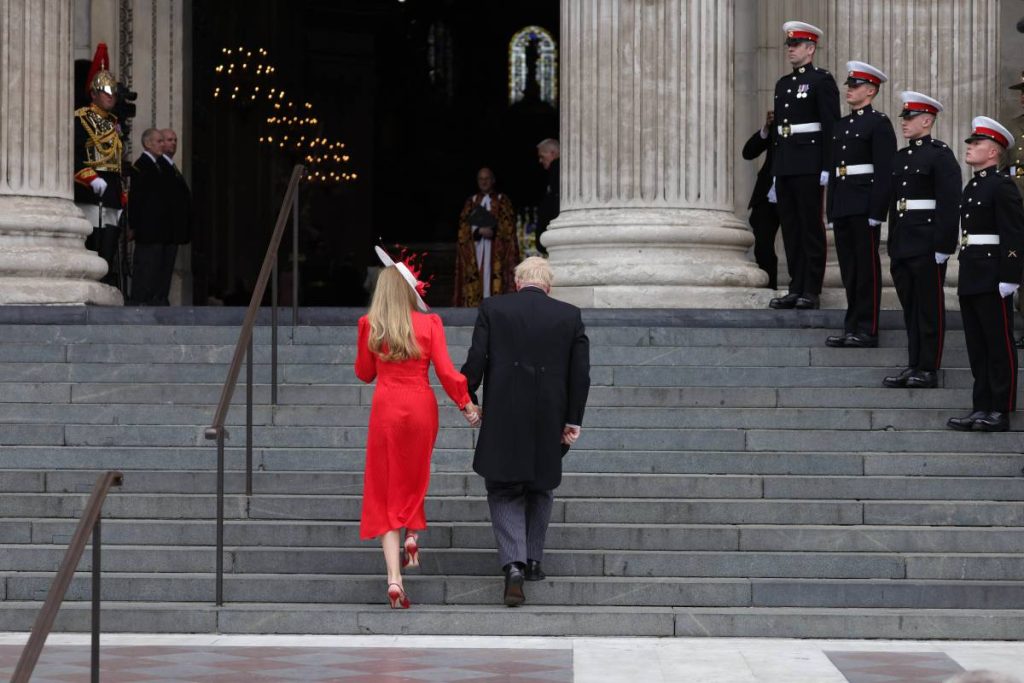Given the British public’s now overwhelming disapproval of Johnson, pressure is expected to be mounted on ministers in Johnson’s government to revolt against him … writes Ashis Ray
“Wounded” is the word that was widely used by a number of British newspapers in headlines about their Prime Minister, Boris Johnson, despite his win on Monday night in a confidence vote in his ruling Conservative parliamentary party.
After Johnson’s fellow MPs moved a no-confidence motion against – the minimum threshold for such a vote being letters from 15 per cent of such lawmakers – 148 of them cast their ballots against him versus 211 in favour. This was an unusually large rebellion, bigger than the number that opposed Johnson’s immediate predecessor Theresa May. Notwithstanding the latter seeing off the challenge, she was compelled to resign within a few months of this verdict.
Given the British public’s now overwhelming disapproval of Johnson, pressure is expected to be mounted on ministers in Johnson’s government to revolt against him. Even a majority of his party rank and files, polls indicate, have turned against him. Backbench Conservative MPs could team up with the opposition Labour party to block legislation in parliament – as they did in the case of May – to paralyse governance.
Conservative MPs are acutely aware that John Major won a confidence vote in 1995, but was crushed in a general election two years later. In other words, they realise their re-elections are endangered if Johnson remains in power.
Johnson had set the pace in a trade treaty with India. Business circles in London maintained optimism on a deal. “I don’t think it changes the speed and direction of the FTA (free trade agreement) negotiations or of the wider UK-India relationship,” an insider stated on condition of anonymity.
However, even a Conservative government under a new Prime Minister, less hostile towards the European Union (EU), is from all accounts likely to smoothen trade ties with the EU, thereby potentially reducing the urgency of a pact with India.
Financial Times, Britain’s leading economic affairs daily, was among the morningers which used the term “wounded”. Its post-mortem of Monday night’s vote was: “Tories (Conservatives) descend into acrimony as Johnson fights for his political life.”
The Daily Telegraph, a paper Johnson work for and which is quite supportive of him, wrote: “Boris Johnson’s hollow victory tears Tories apart.” A commentator in the publication felt “the PM looks like toast”.
The verdict of columnists in The Times asked, is he a “dead man walking?” A sketch on another of its pages portrayed the situation as: “A PM, his party and the country left firmly in limp-in territory.”
Even the right-wing, markedly pro-Boris and hot-selling tabloid Daily Mail pronounced the “brutal confidence vote saw 148 Tory MPs try to oust him – worse than Theresa AND Maggie (Thatcher) – with loyalists admitting even ministers secretly voted against him”.
The left-of-centre Guardian described it as an “unexpectedly large rebellion” before going on to say Johnson is “badly weakened”.
BBC’s analysis was: “Boris Johnson will know his opponents are thwarted, not defeated.”
“Who could replace Boris Johnson?” The Independent asked. It claimed: “Even before the no-confidence vote, he was odds-on at 4/9 to leave No 10 (Downing Street, his Prime Ministerial office-cum-residence) according to (betting agency) Betfair.”

According to this bookmaker: “Jeremy Hunt, the former Health Secretary, is now the favourite to replace the PM at 9/2.” Hunt is also an erstwhile Foreign Secretary, who lost the leadership contest to Johnson in 2019.
Liz Truss, presently Foreign Secretary, is touted as second favourite at 7/1. The third favourite being bandied about is Tom Tughendhat, MP, who has no previous ministerial experience, but is currently chair of the House of Commons’ Foreign Affairs Committee.
A former leader of the Conservative party Lord William Hague said Johnson’s premiership is no longer “viable”. He suggested he “should look for an honourable exit”.














